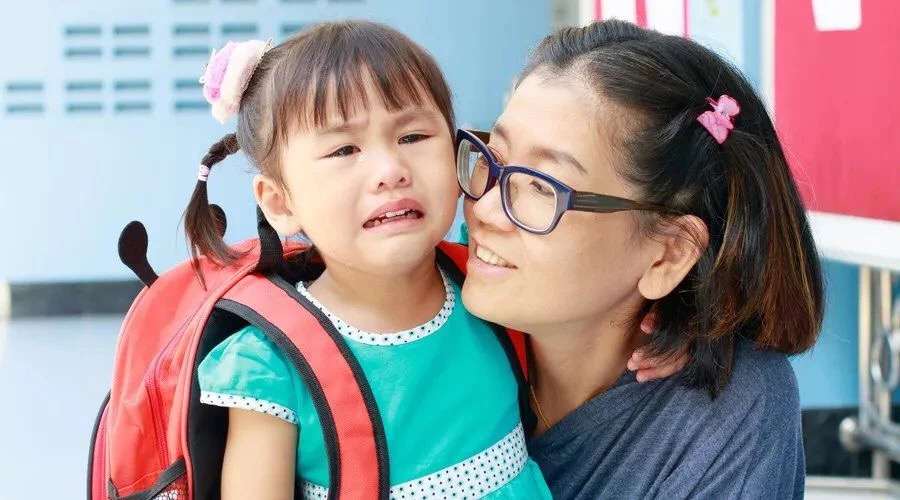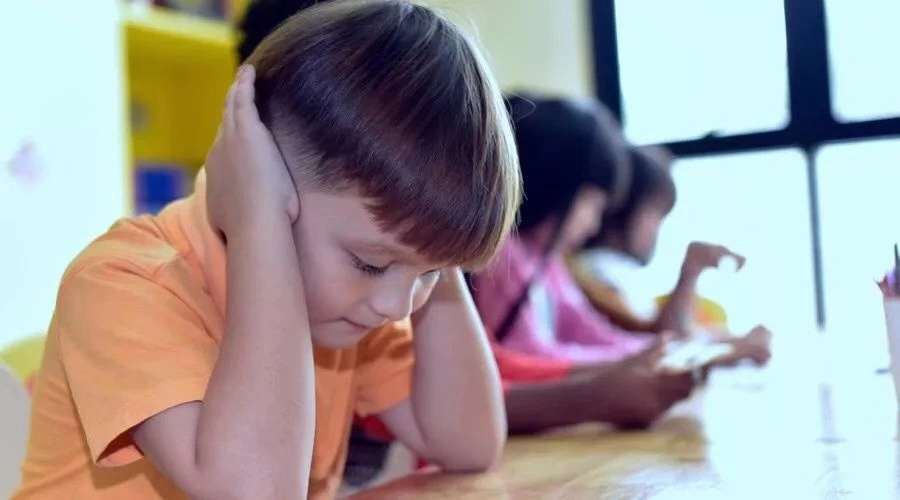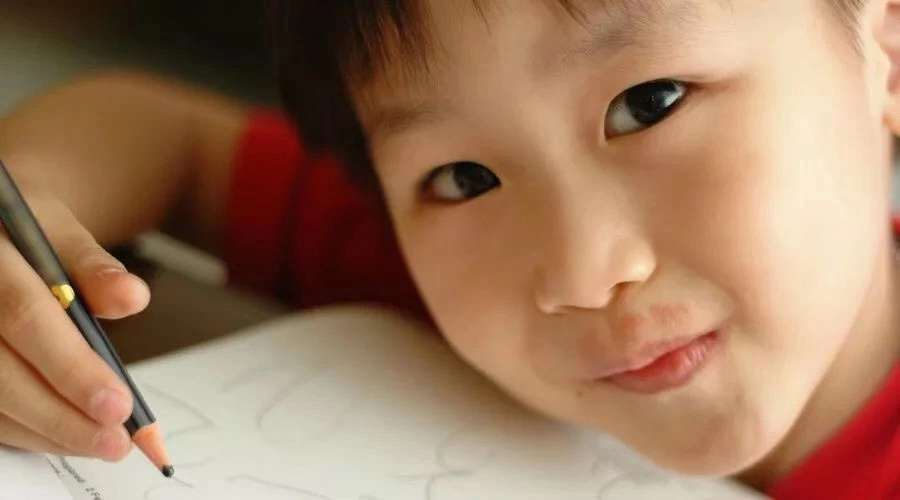School is about to begin, and a new round of kindergarten opening season is about to begin. Parents are busy preparing for their children to go to kindergarten.
Some parents think that the sooner their children go to kindergarten, the better, so that they can have more advantages over their peers in learning and win at the starting line.
In fact, is this really the case?
01
 Photo Source: Station Cool Hailuo Creative
Photo Source: Station Cool Hailuo Creative
Friends who are kindergarten teachers often tell us that when children first enter kindergarten, it is really a headache when they are sent to kindergarten every day.
Every child sent seems to be experiencing a [where will you go].
The older ones are fine, especially those children who were sent by their parents in advance before they reached the age of 3. They are basically crying loudly and shouting “I want to go home” in their mouths.
Even if their parents succeed in getting away, these children will have a hard time in kindergarten.
Older children can basically take care of themselves. These children under the age of 3 cannot speak when hungry or when urinating. Over time, they become “underachievers” in kindergartens.
Affected by this, children themselves will become more and more withdrawn, have no confidence and are unwilling to play with other children.

Before the age of 3, parents are the world of children. Forcibly sending children to kindergartens cannot establish a stable and intimate relationship with children, let alone satisfy their sense of security.
Perhaps parents will think that entering early education classes and kindergartens early will enable their children to learn more knowledge, but this will only do more harm than good than the lack of childhood companionship.
Every child should have his own timetable for growth.
When the indoctrination of knowledge does not conform to the development characteristics of children’s age, it will become a burden for children.
A principal who has been engaged in primary education for many years once said that after many primary school students in Grade One and Grade Two reached Grade Three, their academic performance declined collectively. Such cases abound.
The child not only retreated badly, but also was seriously tired of studying. The halo of “rushing to run” built before the child went to kindergarten no longer exists.
This phenomenon is called the “third grade effect”, and experts believe that it may be caused by the so-called “advanced education”.
02

Behind the advanced education is deep anxiety, worried that children will lose at the starting line.
A few days ago, colleague Lina showed us a daughter’s schedule.
Children under the age of 3 are fully scheduled except for sleeping.
Seeing our surprised expression, Lina said proudly:
Only when there is a plan now can children have the hope of leading in the future.
As parents, we always want to help our children make the best arrangements and plans, and we are always worried that our children will be left behind by their peers if they are not careful.
However, in the arrangement and planning, anxiety was transmitted to the children.
Children perceive this anxiety and pressure, and even amplify this anxiety and reflect it on their bodies or behavior patterns.
On the surface, children are accepting their parents’ arrangements, but secretly they want to escape and do not cooperate. Psychology is also called “passive attack”.
Teacher Yu Minhong once said: Children’s growth process is like a tree. After watering a large amount of chemical fertilizer, they may grow rapidly, but they will develop morbid state in the later period. [This is also the reason why many young talents in China have poor explosive force when they grow up].
Indeed, just as we cannot help silkworm chrysalis become butterflies by cutting off the shell of the cocoon, if we intervene subjectively [I think], we can only get a weak silkworm chrysalis that has lost the shelter of the cocoon prematurely:
Stumble and learn to walk, but no longer have the ability to fly.
Advanced education is not a shortcut to what. Early development of children may really destroy their future.
03

As for when to enter the park, it mainly depends on the development of children’s minds and abilities.
Every child is an independent and different individual, so the best education is not based on time, but on the development law of children.
For example, the age of 3 is the period of children’s intuitive thinking, the age of 5 has image thinking, and it is not until large classes that children have the sprouting of logical thinking.
It is hard to imagine a child in a period of imagination explosion who has to learn Chinese characters by rote and count numbers within 100. Even if she does, what can she do?
Not only is the space originally belonging to imagination filled with crammed knowledge, but how beneficial is the hard-memorized knowledge to children?
Therefore, it is more important to cultivate children’s abilities before entering the park than knowledge and skills.

Before, the old man in the family went out, and my eldest brother also stayed in the child care class for one month. At that time, he was only over 2 years old and could not go to the toilet by himself.
Once my son came home, I found out that he didn’t know what’s poop had dried up on his little ass.
Therefore, children can go to the toilet, eat independently, communicate simply, have certain social skills and sense of rules before entering the park, which are all indispensable abilities for children before entering the park.
Moreover, the better the child’s ability is prepared, the less psychological pressure will be during the transition period to admission and the less anxiety will be caused to the child.

In addition, boys can enter the park later than girls.
Australian scholar Steve Bidalff once mentioned in “Raising Boys”: “Boys develop motor nerves and cognitive skills that control fine movements later than girls, so it is of great benefit to boys to enter school one year later than girls.”
Compared with forcing boys to face an environment beyond their ability, it is better to stay with boys for one more year, which will also help boys to better adjust their pace and step on the starting line of life in the future.
I like a passage written by Long Yingtai to the children very much:
I, sitting on the stone steps in the setting sun, looked at the child with clear eyes and concentrated on one thing.
Yes, I am willing to wait for a lifetime to let him take his time to tie the bow and use his five-year-old finger.
Son, take your time, take your time.
Very not easy to be a mother, every minute is so precious and cannot be repeated.
We are worried again. Where is what? Are we in such a hurry to run to the finish line with our children?
Dear child, let me squat down, accompany you, and watch the earthworms that lost their direction in the soil after the rain, crossing the small puddle and climbing to the distant ridge…….
